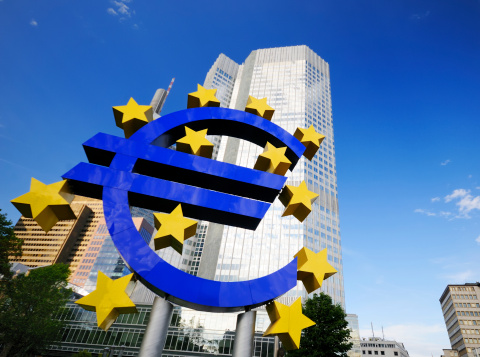Investing
Europe Economy Catches a Falling Knife as PMI Flattens
Published:
Last Updated:
Purchasing managers index (PMI) data for the eurozone as issued by Markit, which did not give reason for much optimism, but should temper pessimism about the region’s overall economy. According to the research firm:
The Markit Eurozone PMI Composite Output Index rose for the third consecutive month in January according to the flash estimate, up to a ten-month high of 48.2 from 47.2 in December, and up sharply from October’s post-crisis low of 45.7. However, while the PMI suggests that the recent downturn may have reached its strongest back in October, the survey continues to signal falling activity overall – which has been the case in 16 of the past 17 months.
The two economies that matter in the region — Germany and France — took different economic directions in January. Fortunately, the larger of the two — Germany — did better.
According to Markit’s specific country data:
Trends were far more varied by country, notably among the two largest euro member states. While output across both manufacturing and services grew at the fastest rate for a year in Germany, French companies reported the steepest downturn since March 2009.
The renewed expansion in Germany was led by the service sector recording the strongest growth for a year-and-a-half, while manufacturing reported the first, albeit marginal, increase in production since March.
Output fell sharply in France, and at faster rates in both manufacturing and services. Outside of France and Germany the average rate of decline remained strong, but moderated for the fourth month in a row to the weakest since last March.
The news likely is good for Angela Merkel, who has struggled recently in her reelection bid. Recent voting in Lower Saxony gave opposition parties an edge. Merkel can now claim her policies have helped the nation’s manufacturing.
On the other hand, the French data nicks work by President Francois Hollande. His push to raise taxes on the richest French citizens has backfired as some of the wealthy have threatened to leave the country. His push to force large companies in France to keep current employment bases also has been met from resistance from corporations with margins lowered by the region’s recession.
Europe’s manufacturing sector may have caught the falling knife loosened by the region’s economy. The most troubling period in the recent history of the European Union may have begun to move behind it.
Credit card companies are at war. The biggest issuers are handing out free rewards and benefits to win the best customers.
It’s possible to find cards paying unlimited 1.5%, 2%, and even more today. That’s free money for qualified borrowers, and the type of thing that would be crazy to pass up. Those rewards can add up to thousands of dollars every year in free money, and include other benefits as well.
We’ve assembled some of the best credit cards for users today. Don’t miss these offers because they won’t be this good forever.
Flywheel Publishing has partnered with CardRatings for our coverage of credit card products. Flywheel Publishing and CardRatings may receive a commission from card issuers.
Thank you for reading! Have some feedback for us?
Contact the 24/7 Wall St. editorial team.